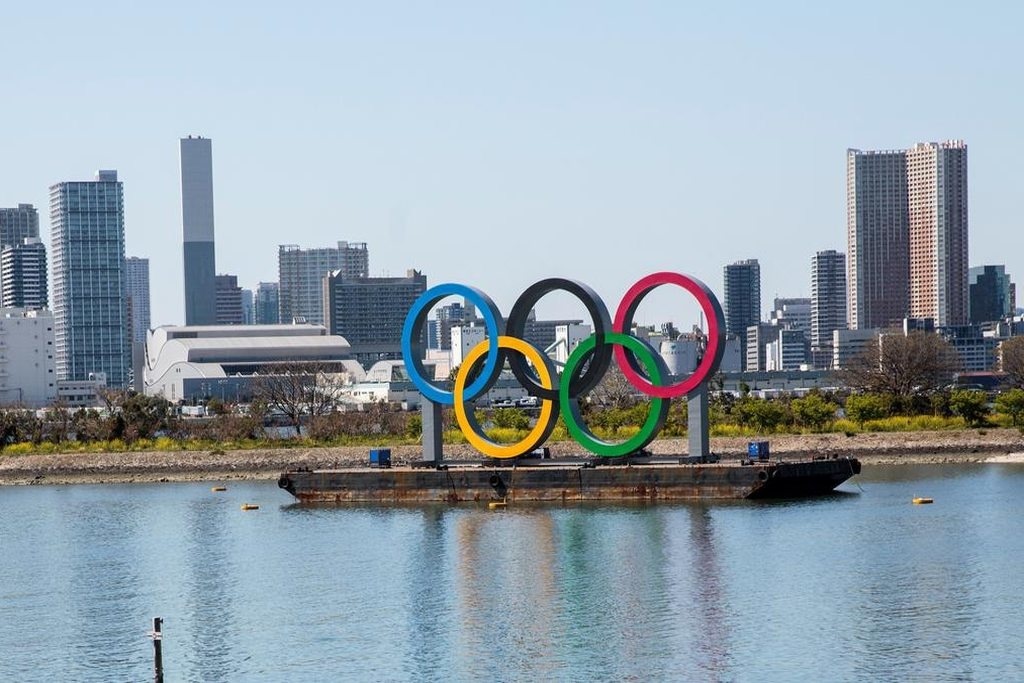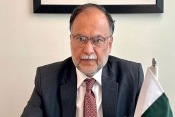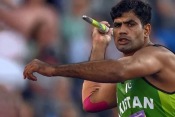Postponed Tokyo Olympics set to start from July 23 next year
The Tokyo Olympics will begin on July 23 next year, organisers said, after the coronavirus forced the historic decision to postpone the Games until 2021.

The Tokyo Olympics will begin on July 23 next year, organisers said, after the coronavirus forced the historic decision to postpone the Games until 2021.
The announcement comes less than a week after the organisers were forced to delay the Games under heavy pressure from athletes and sports federations as the global outbreak worsened.
“The Olympics will be held from July 23 to August 8, 2021. The Paralympics will be held from August 24 to September 5,” Tokyo 2020 chief Yoshiro Mori announced.
“We agreed that the timing of the event will be in summer as originally planned, considering the coronavirus... and a certain amount of time needed for preparations, selection and qualification of athletes,” he added.
In a statement, the IOC said the new dates would give health authorities and organisers “the maximum time to deal with the constantly changing landscape and the disruption caused by the COVID-19 pandemic.”
The decision would also cause ‘minimum’ disruption to the international sports calendar, the body said.
The Tokyo 2020 Olympics were due to open on July 24 this year and run for 16 days, but the coronavirus pandemic forced the first peace-time postponement of the Games.
The IOC and Japan had for weeks insisted the show could go on but the rapid spread of COVID-19 prompted growing disquiet among athletes and sporting federations.
The Olympics was the highest-profile sporting casualty of the coronavirus that has wiped out fixtures worldwide and all but halted professional sport.
There was some speculation that Japanese organisers could take advantage of the blank canvas to shift the Games to spring, avoiding the heat of the Tokyo summer that had been their main concern before coronavirus struck.
Due to the heat, the marathon has been moved to Sapporo, a city some 800 kilometres (500 miles) to the north of Tokyo where the weather is cooler even at the height of summer.
The talk of switching the Olympics to spring would have coincided with the blooming of Japan’s famous cherry blossoms. But it would also clash with European football and North American sports leagues.
Mori said a spring Olympics was considered but holding the games later gives more space to complete the many qualifying events that have been postponed by the virus outbreak.
“We wanted to have more room for the athletes to qualify,” Mori said.
The postponement has handed organisers the ‘unprecedented’ task of rearranging an event seven years in the making, and Tokyo 2020 CEO Toshiro Muto has admitted the additional costs will be ‘massive’.
According to the latest budget, the Games were due to cost $12.6 billion, shared between the organising committee, the government of Japan and Tokyo city.
However, that number is hotly contested with a much-publicized government audit suggesting the central government was spending several times that amount — on items organisers claim are only tangentially related to the Olympics.
The postponement affects every aspect of the organisation — hotels, ticketing, venues and transport being among the major headaches.
Hotels have had to cancel bookings, dealing them a bitter blow at a time when tourism is already being hammered by the coronavirus.
Some venues that had booked events years in advance will potentially have to scrap them to make way for the rescheduled Olympics and there is still uncertainty about whether ticket-holders will get refunded.
Another thorny issue is the athletes’ village, which was due to be converted into luxury apartments after the Games, some of which have already found buyers.
The Japanese government had touted the Games as the ‘Recovery Olympics’, designed to show how the country had bounced back from the 2011 triple disaster of the earthquake, tsunami and nuclear meltdown in the northeastern Fukushima region.
The Games are now being billed as the expression of humanity’s triumph over the coronavirus.
“Humankind currently finds itself in a dark tunnel,” IOC chief Thomas Bach said in Monday’s statement announcing the new date. “These Olympic Games Tokyo 2020 can be a light at the end of this tunnel.”
Mori earlier warned that organisers were faced with an ‘unprecedented challenge’. “But I believe it is the mission of the Tokyo 2020 organising committee to hold the Olympics and Paralympics next year as a proof of mankind’s victory against the virus
“The schedule for the games is key to preparing for the games. This will only accelerate our progress.”
Muto promised transparency in calculating the costs, and testing times deciding how they are divided up.
“Since it [the Olympics] were scheduled for this summer, all the venues had given up hosting any other events during this time, so how do we approach that? Muto asked. “In addition, there will need to be guarantees when we book the new dates, and there is a possibility this will incur rent payments. So there will be costs incurred and we will need to consider them one by one. I think that will be the tougher process.”
Katsuhiro Miyamoto, an emeritus professor of sports economics at Kansai University, puts the costs as high as $4 billion. That would cover the price of maintaining stadiums, refitting them, paying rentals, penalties and other expenses.
Japan is officially spending $12.6 billion to organize the Olympics. However, an audit bureau of the Japanese government says the costs are twice that much. All of the spending is public money except $5.6 billion from a privately funded operating budget.
The Switzerland-based IOC is contributing $1.3 billion, according to organizing committee documents. The IOC’s contribution goes into the operating budget.
Bach has repeatedly called the Tokyo Olympics the best prepared in history. However, Deputy Prime Minister Taro Aso also termed them cursed. Aso competed in shooting in the 1976 Olympics, and was born in 1940.
The Olympics planned for 1940 in Tokyo were cancelled because of World War II.
The run-up to the Olympics also saw IOC member Tsunekazu Takeda, who also headed the Japanese Olympic Committee, forced to resign last year amid a bribery scandal.











